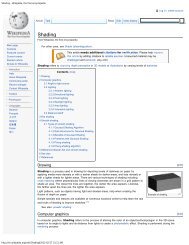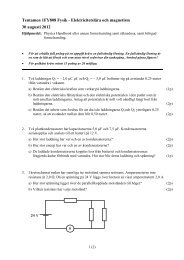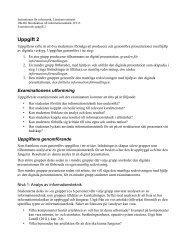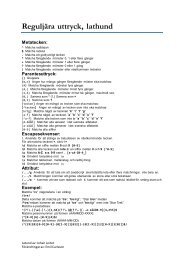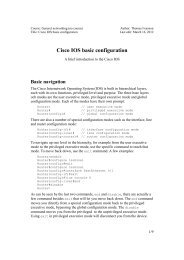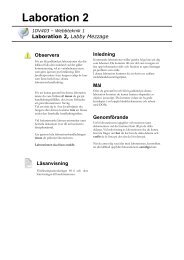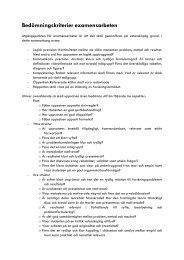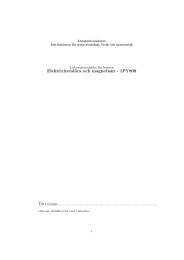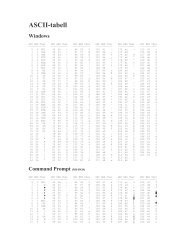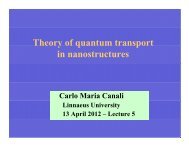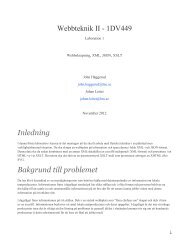Signal Processing
Signal Processing
Signal Processing
You also want an ePaper? Increase the reach of your titles
YUMPU automatically turns print PDFs into web optimized ePapers that Google loves.
Transform theory<br />
Example: Fourier transform of the Gaussian pulse<br />
{ √<br />
F e −at2} π ω2<br />
= e− 4a<br />
a<br />
Proof: Notice that x(t) = e −at2 is a solution to<br />
∂x(t)<br />
∂t<br />
+ 2atx(t) = 0<br />
Take the Fourier transform and use F{ ∂x(t) } = iωX(ω) and F{tx(t)} = i ∂X(ω)<br />
∂t<br />
∂ω<br />
iωX(ω) + 2ai ∂X(ω)<br />
∂ω<br />
Parseval’s theorem<br />
= 0 ⇒ ∂X(ω) ( ) 1<br />
∂ω + 2 ωX(ω) = 0 ⇒ X(ω) = Ce − 4a 1 ω2<br />
4a<br />
∫ ∞<br />
−∞<br />
∫ ∞<br />
x 2 (t) dt = e −2at2 dt = 1<br />
−∞<br />
2π<br />
= {ω = 2at, dω = 2a dt} = C2<br />
2π<br />
∫ ∞<br />
−∞<br />
∫ ∞<br />
−∞<br />
∫<br />
X 2 (ω) dω = C2 ∞<br />
e − ω2<br />
2a dω<br />
2π −∞<br />
e −2at2 2a dt ⇒ 1 = C2<br />
2π 2a ⇒ C = √ π<br />
a<br />
Sven Nordebo, School of Computer Science, Physics and Mathematics, Linnæus University, Sweden. 26(28)



